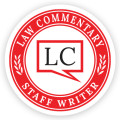A class-action lawsuit filed this week alleges that 40 elite private U.S. universities, including top institutions like Harvard, Yale, and Northwestern, conspired to inflate tuition costs by improperly including the assets of noncustodial parents when calculating financial aid.
The lawsuit, initiated by a Boston University student and a Cornell University alum, was filed in a federal court in Chicago. The claim alleges that the schools coordinated their financial aid policies to prevent competition and overcharge students. Other universities named in the lawsuit include Stanford, Columbia, Duke, and New York University. The nonprofit College Board, which developed the financial aid system that the schools allegedly used, was also named as a defendant.
At the heart of the lawsuit is the claim that these universities agreed to use a financial aid methodology that factors in the income and assets of noncustodial parents—individuals who are not the primary caregivers but still financially support the student. The plaintiffs argue that this practice inflated the overall financial responsibility of families and resulted in students paying significantly more for tuition than they would have otherwise.
“Absent this agreement, the university defendants would have competed in offering financial aid in order to enroll their top candidates,” the lawsuit claims, suggesting that this pricing coordination deprived students of more generous financial aid packages.
The plaintiffs' legal team estimates that more than 20,000 students were harmed by these actions. They are seeking over $5 million in monetary damages and are pushing for a court order to end the alleged conspiracy.
The College Board defended its position, stating that it is confident that it will prevail in court. Many of the universities involved, including Cornell, Boston University, and Georgetown, either declined to comment or did not respond to requests for comment.
This lawsuit follows a similar antitrust case filed in Illinois federal court that accused other prominent U.S. schools of favoring wealthier applicants in their admissions processes. So far, that case has resulted in settlements totaling $284 million with schools such as Columbia, Brown, and the University of Chicago.
Steve Berman, a lawyer for the plaintiffs, underscored the financial burden this alleged collusion has placed on families, saying in a statement, “Paying for tuition is a hardship for almost every family, and this case seeks to remedy a price-fixing agreement that has raised the cost of paying for college.”






